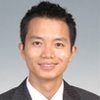Welcome to BARBRI, the trusted global leader in legal education. Continue to access the same expert-led Strafford CLE and CPE webinars you know and value. Plus, explore professional skills courses and more.
About the Course
Introduction
This CLE course will guide patent counsel on the patentability requirements at the USPTO, JPO, and CNIPA when claiming antibodies, recent case law that could impact those claims, and how to protect antibody inventions in light of the latest developments.
Description
Patent applicants frequently employ functional claims to provide broad protection for antibody inventions. However, the Amgen v. Sanofi decision from the Federal Circuit called into question the USPTO's practice of granting claims that define antibodies by their ability to bind to a newly characterized antigen.
Unlike the decision in Amgen, Japan and China will grant a patent for an antibody without producing an actual antibody, provided the antigen is structurally described and has some function.
To meet the support requirements, the JPO requires that the specification describe actual data relating to a claimed use. Japanese law does not permit post-filing data showing such activity to overcome a rejection if the specification does not include any data on activity. Chinese support and disclosure requirements are similar.
To obtain a granted claim on a new antibody to a known antigen, all jurisdictions generally require defining and claiming the antibody structurally. Japanese (JPO) and Chinese examiners (CNIPA) typically require the inclusion of the sequences of the antibody's six complementarity determining regions when claiming an antibody. Furthermore, outside the U.S., structural non-obviousness per se may be insufficient to claim an antibody even if defined by sequence, and it may be necessary to demonstrate that the antibody produces an unexpected technical effect or was produced using non-conventional techniques.
Listen as our authoritative panel of patent attorneys provides guidance on protecting design rights in the global marketplace. The panel will discuss the key differences between the patent laws in the U.S. and other countries that must be understood when developing a strong global IP strategy. The panel will offer best practices for U.S. companies on developing a global strategy.
Presented By

Mr. Jacobstein focuses on strategic client counseling, including due diligence, patent prosecution, and post-grant proceedings, with an emphasis on biotechnology and the life sciences. His experience includes prosecuting and appealing applications within the USPTO, as well as post-grant proceedings and larger portfolio management, licensing, and opinion work. He has conducted numerous evaluations for diligence, clearance, and freedom-to-operate assessments, and has extensive experience providing patentability, validity, enforceability, and infringement opinions.

Mr. Miao Cheng is an experienced Chinese patent attorney and has been practicing Chinese law for 16 years. His practice area includes patent infringement litigation, patent administrative litigation, patent invalidation, patent drafting and prosecution, licensing and transaction, FTO, due diligence, and legal opinions; trademark prosecution, opposition, invalidation and licensing. He has represented Pfizer, Roche, Eli Lilly, AstraZeneca, Novo Nordisk, Bayer, Merck, Wyeth, Ajinomoto, among others in patent litigation.

Dr. Murphy focuses her practice on client counseling and patent prosecution for a range of clients. She prepares new patent applications, prosecutes U.S. and foreign applications, and represents applicants at appeals and oral hearings before the PTAB. She has experience in prosecuting inter partes and ex partes reexamination applications, reissue applications, and patent term extension applications for approved pharmaceuticals, including obtaining supplemental protection certificates in Europe.

Mr. Yamamoto is an experienced patent attorney. He has 10 years of experience in biotechnology and pharmaceutical research at a chemical company before specializing in intellectual property. He has represented a variety of companies in the fields of food and beverages, diagnostics, biotechnology and pharmaceuticals. He is experienced in patent prosecution, invalidation trials and infringement lawsuits.
-
This 90-minute webinar is eligible in most states for 1.5 CLE credits.
-
Live Online
On Demand
Date + Time
- event
Thursday, September 10, 2020
- schedule
1:00 p.m. ET./10:00 a.m. PT
- Written description requirements for antibody claims
- Obviousness requirements for antibody claims
- Case law developments
- How examiners are instructed to assess antibody claims
- How to best protect antibodies globally and how broadly claims should be drafted
- How to provide disclosure and data in a patent application to support different claim strategies
The panel will review these and other relevant issues:
- How broadly can the applicant claim? How much support is needed on a filing?
- What are the differences between U.S. requirements, JPO requirements, and CNIPA requirements?
- What is a sufficient description of a genus? Can functional language be included?
- When can post-filing data be used?
- What is needed to demonstrate the nonobviousness of antibody claims in different jurisdictions?
Unlimited access to premium CLE courses:
- Annual access
- Available live and on-demand
- Best for attorneys and legal professionals
Unlimited access to premium CPE courses.:
- Annual access
- Available live and on-demand
- Best for CPAs and tax professionals
Unlimited access to premium CLE, CPE, Professional Skills and Practice-Ready courses.:
- Annual access
- Available live and on-demand
- Best for legal, accounting, and tax professionals
Unlimited access to Professional Skills and Practice-Ready courses:
- Annual access
- Available on-demand
- Best for new attorneys




